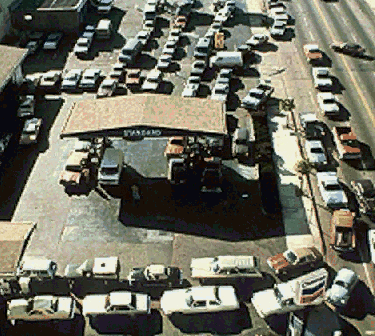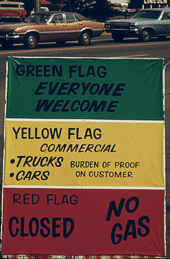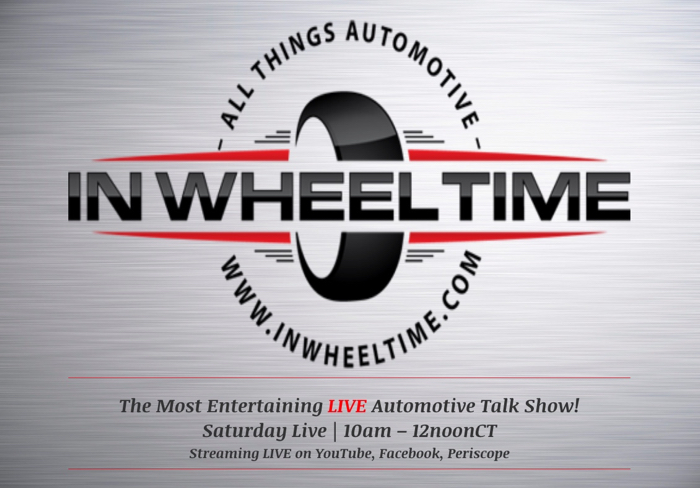The old adage is “follow the money.” If you want to understand why something has happened. Determine who gains financially from the event and start to dig. Often, I’ve found this to be true.
I believe people are, on the average, good. Most of us believe in the ideal of “live and let live.” Yes, we can be manipulated by others, especially media of all types, including television “news”, political organizations’ pronouncements and social media. Some of us are more well-read than others, helping us to discern between truth and bullcrap, some of the time. Some of us don’t study the issues, and although it’s disconcerting that those that have less understanding about the world around them (history, science, etc.) have the same vote as those who do, that’s the way we’ve set up our country. In fact, it may have been a stroke of genius, intended to leverage the general goodness of people and the knowledge and experience of the average person for the betterment of our society. However, there’s a dark side to this as well: We all want more and we’ve proven over and over that we’ll do some pretty heinous and short-sighted things to get more.
In discussing terrorism with friends and coworkers, I am always trying to get to the root cause, to follow the money. Our dependence on oil to fuel our economy has caused many countries, including our own, to do some pretty heinous things. This usually means overthrowing the government of a sovereign nation with whom we disagree or who happens to be between us and something we want, like oil.
Make no mistake, we are addicted to oil. Just like any addict, we will justify whatever it takes to get our next fix. One of my favorite movies, “Three Days of the Condor,” which is about the murder of all the CIA operatives in a building (except Robert Redford/Condor, who was luckily out to lunch). Condor frantically tries to determine why the murder of his friends and associates happened, so he can remain alive. A great quote from the movie is a conversation between Higgins (CIA Deputy Director) and Condor/Joe Turner:
Higgins: It’s simple economics. Today it’s oil, right? In ten or fifteen years, food. Plutonium. Maybe even sooner. Now, what do you think the people are gonna want us to do then?
Joe Turner: Ask them?
Higgins: Not now – then! Ask ’em when they’re running out. Ask ’em when there’s no heat in their homes and they’re cold. Ask ’em when their engines stop. Ask ’em when people who have never known hunger start going hungry. You wanna know something? They won’t want us to ask ’em. They’ll just want us to get it for ’em!
 Three Days of the Condor premiered in 1975. For those of you too young to remember, this was shortly after the first OPEC oil embargo of 1973. Unfortunately for me, this happened just before I got my driver’s license, at the age of 16. There were lines at the gas stations that took hours to queue. There were only certain days you could fill up, based on your license plate number. Gas stations had green, yellow and red flags to let buyers know, at a glance, if they had any gasoline available. Fights broke out in the gas lines.
Three Days of the Condor premiered in 1975. For those of you too young to remember, this was shortly after the first OPEC oil embargo of 1973. Unfortunately for me, this happened just before I got my driver’s license, at the age of 16. There were lines at the gas stations that took hours to queue. There were only certain days you could fill up, based on your license plate number. Gas stations had green, yellow and red flags to let buyers know, at a glance, if they had any gasoline available. Fights broke out in the gas lines.
Sound like a dystopian future? This actually happened. Twice! A second oil embargo occurred in 1979.
The United States, in my opinion, has to get this monkey off its back. We cannot wait for oil to run out. We have to do this to return to the principles under which we created this country. To be the shining example of a peaceful, engaged country, we have to stop our addiction.
 Will this be easy? Absolutely not! Many, many jobs will be lost while new industries will rise to provide jobs. Our workforce, especially those employed in the oil exploration, production, refining and delivery industries will need job training in order to continue to provide for their families. Otherwise, they will fight this change. It will be painful for these people. Oil prices are at a nine year low right now, so the temptation is to let things slide a little longer. I propose that this is the exact right time to end our addiction. Many oil and gas workers will lose their
Will this be easy? Absolutely not! Many, many jobs will be lost while new industries will rise to provide jobs. Our workforce, especially those employed in the oil exploration, production, refining and delivery industries will need job training in order to continue to provide for their families. Otherwise, they will fight this change. It will be painful for these people. Oil prices are at a nine year low right now, so the temptation is to let things slide a little longer. I propose that this is the exact right time to end our addiction. Many oil and gas workers will lose their  jobs, due to the collapse of oil prices. I myself went through this in 1985, during a severe downturn in the price of oil. The first ten years of my career was spent in the field of oilfield manufacturing. That came to an abrupt end in late 1985. Half the homes, in my neighborhood in Houston, were abandoned. One morning, I woke up to find my neighbor next door had moved out, in the middle of the night, abandoning his home. Realtors refused to list our home because it was worth so much less than we owed. A two-story home, down the street from ours, sold at auction for a price so low, the buyer put it on his credit card! I eventually lost my home and had to move to the Dallas/Fort Worth area to find employment.
jobs, due to the collapse of oil prices. I myself went through this in 1985, during a severe downturn in the price of oil. The first ten years of my career was spent in the field of oilfield manufacturing. That came to an abrupt end in late 1985. Half the homes, in my neighborhood in Houston, were abandoned. One morning, I woke up to find my neighbor next door had moved out, in the middle of the night, abandoning his home. Realtors refused to list our home because it was worth so much less than we owed. A two-story home, down the street from ours, sold at auction for a price so low, the buyer put it on his credit card! I eventually lost my home and had to move to the Dallas/Fort Worth area to find employment.
It. Was. Bad.
The upside to the current oil glut, is that these unemployed oil workers will have to find jobs in other industries. They won’t lose their jobs because we’re all going to EVs, so there’s nothing for them to oppose. The oil industry has always been boom and bust. It always will be. Unfortunately, its booms and busts ripple through our economy, as jobs are lost, during busts, or people cannot afford high gas prices, during booms. The threat, posed by the U.S. oil shale and electric vehicles, to OPEC are helping keep oil prices low. In other words, our drug dealer, sensing we’re tired of being addicted and may seek help, is offering us a “freebie,” to keep us hooked and out of rehab. Hopefully, we’re not that short-sighted or gullible.
We have a unique opportunity now to drastically change the balance of power, in the world, in a way that fundamentally improves our lives, our future and helps us to be the nation we say we are. We should think of hybrids and EVs as our nicotine patch, our chance to break the addiction. It isn’t the only step needed, but it’s a good first step that turns out to be fun, once you’ve made the transition. Just ask any EV owner about their cars. You can’t get us to shut up! There’s a reason we’re so excited (and we just can’t hide it), and it isn’t environmentalism or saving money alone. We love the experience of driving electrically! The silence, the acceleration, the smooth ride are all something we love. It even kept me from getting a convertible recently, (and I wanted it terribly).
 Currently, nations’ representatives are meeting in Paris (France, not Texas) at the COP21 climate change conference. One announcement so far, gives me hope: Top Gear has announced, on their blog, that an agreement has been reached that claims that, by the year 2050, all new cars sold in eight US states, and five countries including the United Kingdom must make zero tailpipe emissions.
Currently, nations’ representatives are meeting in Paris (France, not Texas) at the COP21 climate change conference. One announcement so far, gives me hope: Top Gear has announced, on their blog, that an agreement has been reached that claims that, by the year 2050, all new cars sold in eight US states, and five countries including the United Kingdom must make zero tailpipe emissions.
Obviously, I think this is good, even if much later than it will happen on its own. The advantage right now, is we’re experiencing the pain of withdrawals anyway, so why not kick the habit now?


“by the year 2050, all new cars sold in eight US states . . . must make zero tailpipe emissions.”
How about a 100 mile per gallon CAFE standard in 2020 or sometime soon? Manufacturers would be forced to move to plug-ins, both all electrics and hybrids, across their product lines.
I think this is not something that can be rammed down people’s throats without generating a lot of resistance. Manufacturers are getting on the bandwagon because they’re seeing there is a viable, growing market for plug-in vehicles. There are no enforcement capabilities in the Paris agreement, so we have to continue to show the better driving experience, economy and of course, the environment as reasons to get a plug-in vehicle. Also consider what would happen to dealer inventory and trade-in value of existing cars. A sudden change would have dire economic consequences.
Would we have as fuel efficient cars as we have now without CAFE standards? I don’t think so. Despite all the complaining from manufacturers, I think they have been a great success. There’s nothing wrong with pushing people. That was Steve Jobs’ key to success, wasn’t it?
Right now, the CAFE standards ratchet up incrementally a pathetic one or two miles per gallon a year to 46 mpg for large cars and 60 mpg for small cars in 2025.
https://en.wikipedia.org/wiki/Corporate_Average_Fuel_Economy
Those might have been challenging goals at one time, but they aren’t now. With plug-in technology, the 2025 standards should be at least twice as much.
The standards should be increasing 5 to 10 miles per gallon per year instead of 1 or 2 miles per gallon per year.
As to dealer inventory and trade-in values, I don’t think the CAFE standards make less fuel efficient cars illegal to buy, sell or drive. I think they are about how fuel efficient new cars must be in the future.
The executive branch has the authority to do this on its own, I think. That would be a nice present to the nation by Obama on his way out.